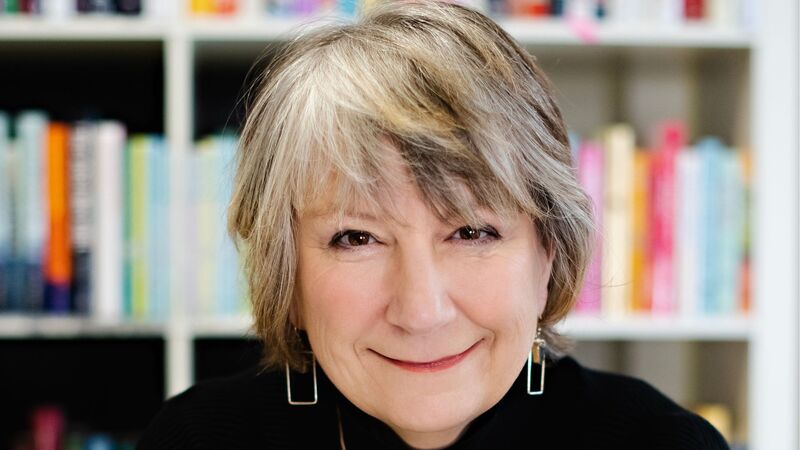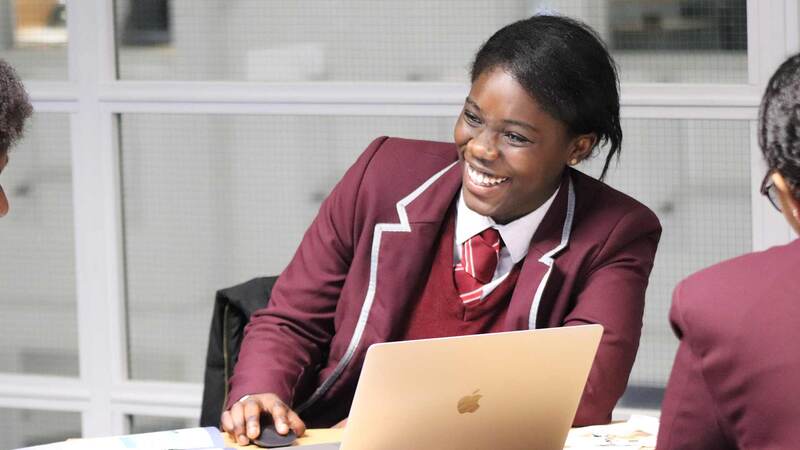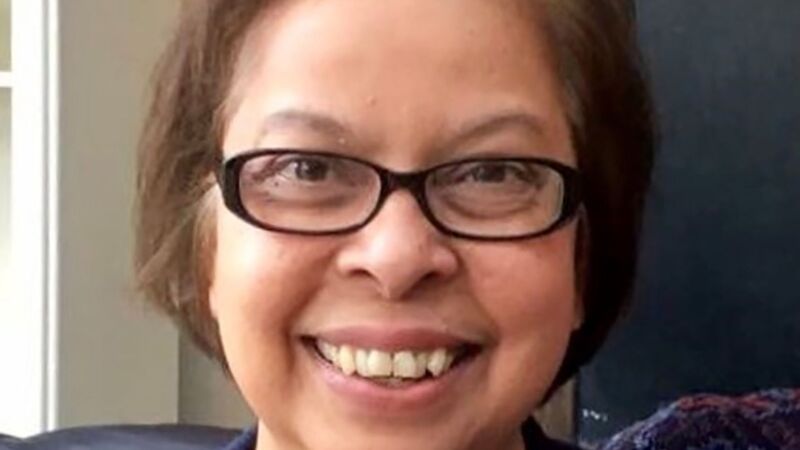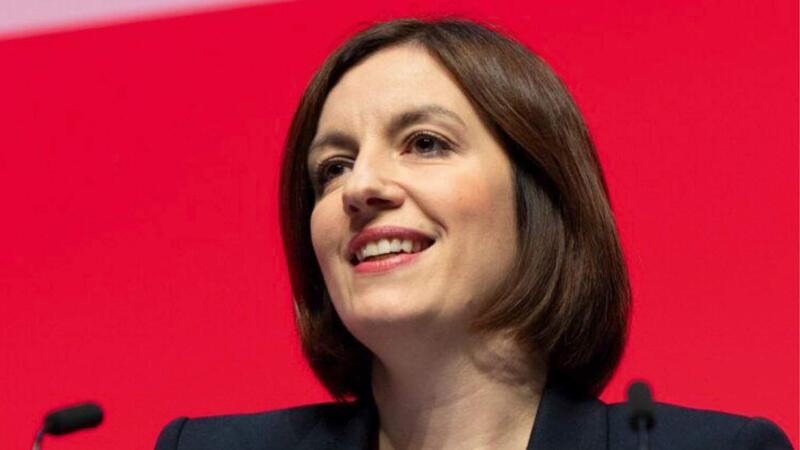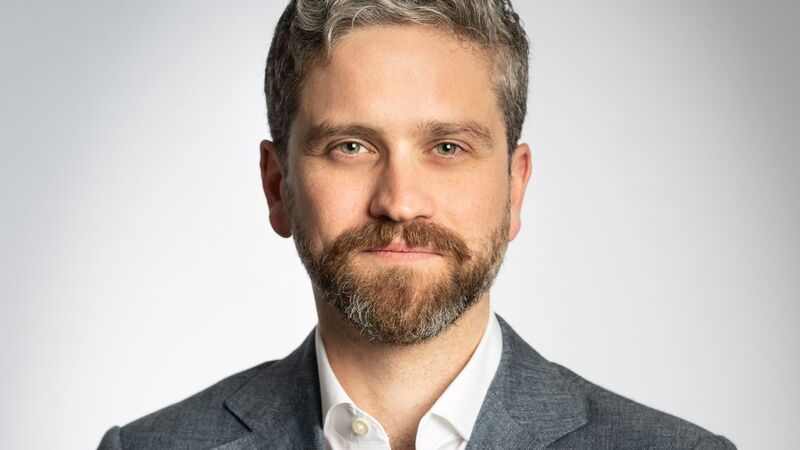You are viewing your 1 free article this month. Login to read more articles.
Open letter says 'transphobia acceptable in British book industry'
A group of individuals from across the books industry has written an open letter to The Bookseller which has warned “transphobia is still perfectly acceptable in the British book industry”, arguing that what is needed is “quiet statements of acceptance from companies and organisations within our industry”.
The three-page letter, entitled ‘The Paradox of Tolerance’, is signed anonymously from a number of trade figures, including publishers, writers, illustrators and booksellers. It is published below this article. The Bookseller has been passed some details of signatories but has been unable to independently verify these for reasons of confidentiality.
The letter reads: “The hardest thing to say here is that the deepest damage is being done unwittingly, by those who don't understand, or who want to try and take no side. It is easy to express abhorrence of discrimination in literature, but we all need to express it in our own day to day lives too.” It calls on organisations to make specific statements of acceptance and discusses previous forms of discrimination in regards to “homosexuals, Jews, disabled people, people of colour, Muslims, suffragettes, even left-handed people in our past”.
The letter’s authors call on the industry to take action to prevent transphobia: “Let’s not make this a time when we repeat our history. Seek to do no harm in your language and actions.”
Stephen Lotinga, c.e.o. of the Publishers Association, told The Bookseller in response to the letter’s key points: “Publishers recognise our dual responsibilities: to create inclusive workplaces where all employees feel valued and respected; and to publish a diverse range of views and voices, within the confines of the law.
“There is of course more that this industry can do to ensure that people who have experienced prejudice both historically and in the present, feel welcome and included and we will continue to strive to ensure that is the case.””
The letter comes less than a week after Hachette c.e.o. David Shelley and literary agent Clare Alexander spoke to the Communications & Digital Committee in the House of Lords investigating freedom of expression online, which included a discussion of “cancel culture” and authors feeling they had to self-censor.
Publishers such as Penguin Random House (PRH) have taken steps to encourage diversity in the industry. PRH has been part Stonewell’s Diversity Champion’s programme, a scheme ensuring all LGBTQI+ staff are accepted within the workplace. With Stonewall’s help, PRH published a new company policy and guidance for colleagues and managers on gender transition at work last year, which includes time off for medical procedures and appointments and makes reasonable adjustments in the workplace. This policy also makes it explicit that it does not tolerate discrimination against those who have chosen to transition or those who identify as trans.
Around 500 PRH employees completed Allyship in the Workplace training with inclusion organisation The Other Box last year which included information and guidance relating to supporting trans and non-binary colleagues specifically. PRH also has gender neutral facilities at all its sites.
It publishes a number of trans authors including Shon Faye and Paris Lees and through its website and channels it focuses on queer literature, in particular through its annual ‘Penguin Pride’ campaign.
Last year Hachette UK launched a partnership with All About Trans and made a £10,000 donation to LGBTQ+ charity Stonewall UK as the latest initiatives in Changing the Story, a diversity and inclusion programme launched in 2016 to help the company achieve its mission of becoming the publisher and employer of choice for all people. Melanie Tansey, group HR director at Hachette UK, said at the time: "We believe trans and non-binary rights are human rights and diverse gender identities and expressions are accepted, visible and celebrated within our company."
This is an edited version of the letter passed to The Bookseller:
'The Paradox of Tolerance'
Somebody, sooner or later, must speak up. So here we stand together, a group of writers, illustrators, booksellers and publishers, to make a start and say what others dare not say or can’t quite articulate. At this moment what needs to be expressed most urgently is the distinction between a petty anxiety and the horror that rises when you become aware that you are witnessing a persecution.
Transphobia is still perfectly acceptable in the British book industry. Our industry excuses it, says that to view transgender individuals as having less than full human rights is OK and an opinion as valid as others. Our industry is still very comfortable about giving this form of prejudice a powerful platform. We need to step away from the paradigm that all opinions are equally valid. It isn't true, and it never was. To quote Douglas Adams: “All opinions are not equal. Some are a very great deal more robust, sophisticated and well supported in logic and argument than others.” There are a few individuals who are openly using language about the transgender and non-binary community that isolates that community and pushes them away from being fully accepted as part of society. If your opinion makes you blind to the shunning and demonising of a young community who are trans or non-binary, then we'd like to invite you to reconsider the extent to which you have understood the implications of voicing your opinion or allowing discrimination and persecution to go unchallenged.
Far from being the ‘cancel culture’, some have labelled it, it is the opposite: the whole point of calling out prejudiced views is to ensure that as many people as possible are welcomed and included. There is a paradox inherent in the concept of tolerance; if we are tolerant but ill-informed, tolerant with no limit and no moral compass, then the intolerant destroy inclusivity and persecute minorities. To maintain a tolerant society that moves with new understanding and broadens its language to include rather than exclude, we must be intolerant of prejudice.
The hardest thing to say here is that the deepest damage is being done unwittingly, by those who don't understand, or who want to try and take no side. It is easy to express abhorrence of discrimination in literature, but we all need to express it in our own day to day lives too. There seems to be a prevailing expectation that: 'if we don't talk about it, we can keep it under control, keep it away from us’. To some: ‘it is just a fashionable protest, an illusion, an 'issue' of our time’ or ‘This isn’t something on which we have to have an opinion, its someone else’s fight’; publishers will excuse themselves from responsibility by saying: ‘It is right that we publish all views’. As an industry, we are supremely confident at being vague and worthy; but is that more about ensuring our own comfort, and not about actually about recognising and challenging a deep prejudice? Too many organisations seek only to stop a crescendo of angry voices for the sake of their own reputation, without a thought about whether they address the matter or not, or how their inaction and acceptance of prejudice now will look to the next generation. Remaining silent or tiptoeing round the matter is doing colossal damage to a small and vulnerable community.
Most frightening of all, we've been here before.
Those of us who have studied history can see perhaps more clearly than many that the language and accusations against the trans community are *exactly* those that have been used against: homosexuals, Jews, disabled people, people of colour, Muslims, suffragettes, even left-handed people in our past. The language is very revealing: people will say that it upsets the natural order of things; there's an implication of something monstrous; they'll say that these people are dangerous; these people look different; they aren't proper people somehow, not what they should be; it is just a phase, it is an illness. If you re-read many of the speeches and comments from the those who seek to tell us that speaking about transgender people this way is a valid opinion, and in your mind replace the word transgender with 'Jews' or 'Refugees' or 'Gay Men', you'll see how unpleasantly familiar it becomes.
Women's refuges are not underfunded because of transgender women existing any more than the Jews were responsible for the economic problems of the Weimar Republic, or the Chinese were to blame for the depression that engulfed America after the Civil War, or than the Latinos brought down Wall Street with nothing but dreams of finding work and owning their own home. Repeatedly in our history, we’ve blamed our fears on minorities. And yet so many intelligent people still fall for it. Never underestimate the power of fear to distort judgement and perception.
In the case of transgender people there is even talk of segregating them from others in public spaces. We’ve walked down the segregation route before ‚Äì was it really so long ago that we have forgotten notices above restrooms and public spaces that read: ‘No Blacks, No Irish’ or drinking fountains labelled ‘Whites Only’? Are we all happy to hear that type of segregation discussed again without challenging it? It is also within our living memories that we once used this same isolating and alienating language against gay men and lesbians: we said they shouldn't be allowed to be teachers because they'd be dangerous around children; gay men shouldn't be allowed in men's changing rooms, what if they found one of the other men attractive? It was this language, and the fear that it instilled, that resulted in Section 28. That period resulted in a whole generation of young men and women growing up terrified and unable to present publicly the way they really are.
Now, some people are doing exactly this to the trans community. When we breed fear about a community, we isolate them and encourage doubt to spread like smoke. This is where stereotypes and media bias are at their most dangerous. What is a trans woman or trans man like? What do they look like? How do they act? When people make comments about trans women not being allowed in women's spaces, perhaps the image that pops into their minds is of a huge man invading their space. The doubt that then chokes us is: ‘we fought for that space as women, we still have to fight for our safety’. In their minds they’ve confused transgender with disguise. This isn’t about playacting. It isn’t a disguise you then take off to reveal the real you. It is about identity. Most people who are on the trans spectrum have known and felt it from a young age. The reality is that we are probably talking about a young, extremely uncertain and underconfident teenager, or nervous young adult who might or might not have learned to fit in. And yet, even though these women and men work hard to present as the gender they are, and have been through more uncertainties and self-exploration than most cis men and women can imagine, the media-stoked bias against transgender people is of a tormented, disguised aggressor. If you're feeling brave, please Google 'Transgender Violence', what you'll see is a whole string of news reports and studies in which violence is being done TO transgender people, and not BY them. We have allowed parts of the media and even popular literature to paint a picture of trans gender people, adults and children, as being dangerous, screwed up, potential aggressors. As it did in Nazi Germany against the Jews, and in the 1980s against the ‘unnatural practices’ of the gay community as the origin of AIDs, after 9/11 to the entire Muslim population of the West, confirmation bias in comment and literature is once again playing a role in the persecution of a minority.
In the light shone on this by even the most basic study of history, it is clearly not appropriate to say simply 'everyone is entitled to their opinion'. Would you today say of a homophobic person: 'Well their opinion is just as valid as mine'. What about someone making sexist or racist comments? No? So why is it ok for the transgender and non-binary community to be an optional extra when we talk about discrimination?
We’ve publishers that boast of diversity in their recruitment, while seeing no problem with denying those people dignity at work. If you are a publisher or an organisation that is aware that you are providing a platform for these fearmongering, discriminatory views to be expressed, and for that bias against a minority in society to perpetuate, then please consider very carefully why you have allowed that to happen and not acted when the matter came to light. How will your actions appear in the clear light of history?
What we do have, though, is an amazing opportunity. We have the chance now to help stop a generation of trans and non-binary kids growing up in the same threatening environment that gay men and lesbians grew up in in the 1980s. What is currently registered as 0.2% of the population is likely to be revealed by this current census as being very much higher. Wouldn't it be wonderful if because of words and attitudes we chose now some or all of those peoples' lives were made better, and that they felt welcomed and part of something?
We don’t have to make a lot of noise and instigate riots ‚Äì we need quiet statements of acceptance from companies and organisations within our industry. We need these same groups, as well as the many individuals, to take the time to read and think. We need people to consider carefully if their own experiences or upbringing has blinded them to new understanding.
As William Blake wrote: “The man who never alters his opinion is like standing water, and breeds reptiles of the mind.”
The Women's Prize announced recently, had its first transgender woman on the longlist. They have a clear and precise statement which was released in October which states that eligibility for the prize extends to "all women" where a woman is defined as "a cis woman, a transgender woman or anyone who is legally defined as a woman or of the female sex". Also, in the last few weeks, prominent historian and writer Dr Janina Ramirez tweeted the following words: “I’ve given this a lot of thought. I’m married with two kids & love my husband completely. But I realise my catholic upbringing blinded me to the sexual spectrum. Wouldn’t the world be better if we all embraced our ‘they/them’? We’re all complex & that pronoun seems to work?!” There is only respect to be gained by changing your opinion when you have taken the time to consider, to read, think, and to talk to others. Be thoughtful. And above all, be mindful of who and what is influencing your opinions.
Isn't it a riddle why, as a community of creatives who take such joy in the complexities of the human character, so many find this subject troublesome rather than awe-inspiring and interesting? Those who have had the courage to identify publicly as non-binary or transgender are telling us all that to be human is even more complex and nuanced than we have understood before. Humans are not constricted to the binary notion of gender that has been taught to us for generations. We never were. From the writings of Ovid to the classic motifs of Gothic fiction; and from Virginia Woolf’s Orlando to Gore Vidal’s Myra Breckinridge, gender complexity, ambiguity and fluidity has been part of our cultural understanding of what it is to be human. Across the whole world there are cultures that consider gender to be far more than binary - from the five genders identified by the Muslim Bugis society (makkunrai, oroan√©, bissu, calabai, and calalai), to the North America First Nations that recognise a non-binary group they respect as ‘two-spirited’, gender is widely acknowledged to be more complex than the neat binary system we have imposed.
We need to start to understand and talk about gender as a spectrum, a whole colour wheel, rather than just pink and blue.
If your uncertainty about this community is founded in the fact that you feel you've already had to fight for your own space, your own identity, your own safety and recognition of your rights, please don't now do to another minority what was done to you. Be kind. Be aware of what you write on the world. Treat and talk about the young trans and non-binary community the way you would like to have had your own culture and rights acknowledged. You’ll not right the wrongs done to you by oppressing someone else.
Never, in all of history, has the persecution, belittlement in language and isolation of a minority proved to be the right moral course after all. It is a human trait to isolate the 'other' and project onto them all the fears of society.
We need to start to understand and talk about gender as a spectrum, a whole colour wheel, rather than just pink and blue.
Let’s not make this a time when we repeat our history. Seek to do no harm in your language and actions.












